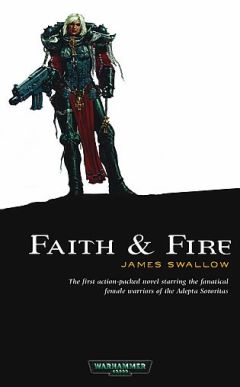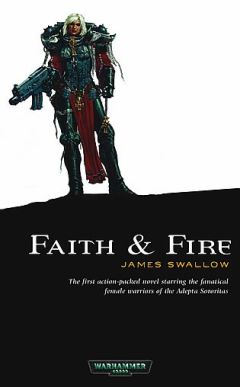Пользователь - WORLDS END
На электронном книжном портале my-library.info можно читать бесплатно книги онлайн без регистрации, в том числе Пользователь - WORLDS END. Жанр: Прочее издательство неизвестно, год 2004. В онлайн доступе вы получите полную версию книги с кратким содержанием для ознакомления, сможете читать аннотацию к книге (предисловие), увидеть рецензии тех, кто произведение уже прочитал и их экспертное мнение о прочитанном.
Кроме того, в библиотеке онлайн my-library.info вы найдете много новинок, которые заслуживают вашего внимания.

Пользователь - WORLDS END краткое содержание
WORLDS END читать онлайн бесплатно
Basil Zaharoff was sixty-five now, and couldn't last forever. Who was going to take his place as master of the most important of all trades? And where was the industry of the future to be situated? In Sheffield, England? In the French village of Creusot? In the German Ruhr, or at Skoda in Austria, or on the Volga, as the Russian Tsar was daring to dream? Robbie Budd had picked out a far safer location, up the Newcastle River in Connecticut. "It'll not be an extension of Budd's," he explained; "but a new and completely modern plant. No enemy can ever get to it, and when it's in operation it will mean three things: American workingmen will supply the world, an American family will collect the money, and America will stand behind its ramparts, able to defy all the other nations put together. That's what we'll some day have to do, so why not get ready?"
Robbie went on to explain what Zaharoff was doing in France. The country's armament trust was known as Schneider-Creusot, and for years the old Greek devil had been intriguing to get control of it and share the profits of the rearming of Russia. He had bought a popular weekly paper so that he could tell the French people what he wished to have believed. He had endowed a home for retired French sailors and been awarded the rosette of the Legion of Honor. He had bought a Belgian bank, so as to become a director in Schneider's; and when his rivals had kicked him out, he had proceeded to tie up Europe in a net of intrigue in order to bring them to their knees.
First, he had gone to Turkey, and as "Vickers, Limited" had signed a contract to provide that country with warships and arsenals. This had frightened Russia, whose dream was to get Constantinople; so the old rascal had proceeded to that country, and pointed out to its officials the grave danger to them of remaining dependent upon foreign armaments. Zaharoff offered, through his British Vickers, to build a complete modern plant at Tsaritsyn on the Volga, and to lease all the Vickers patents and trade secrets to Russia. This, in turn, had frightened the French; for they could never be sure of the position of Britain in any future war, and if Russia got help from Britain, it would no longer need help from France. To make matters worse, Zaharoff had spread the story that the German Krupps were buying the Putilov arms plant in Russia. All this had broken the French nerve, and Schneider had had to give way and let Zaharoff have his share of the money which France had just loaned to Russia.
"That's why you have to watch the papers," said the father, and showed an item he had clipped that very day. Vickers had received orders from the Russian government for thirty-two million dollars' worth of armaments. "More than one-fourth the whole French loan!" sighed Robbie - deeply grieved because his country had no part in it. America's arms plants were pitifully small, and the business they could pick up in Europe was the crumbs that fell from a rich man's table. "But you and I are going to change all that!" said the salesman to his son.
V
They let down their anchor for a while and caught some fish, and Lanny told about Mr. Elphinstone, and got teased about his new English accent. Then Robbie mentioned that he had to go to Monte Carlo the following day, having an appointment with a Turkish pasha who was interested in buying ground-type, air-cooled machine guns. Robbie had found out that France was lending money to Turkey, with which to pay Zaharoff for his warships and arsenals; so the Turkish officials had plenty of cash. "It's a queer mix-up," Robbie said; "I'm not sure if I'll ever understand it. Even though the French are lending money to Turkey, they appear to distrust it, and don't want it armed too fast; but the Germans seem to want Turkey armed - at French expense, of course. I am dealing with Turkish officials who are secretly in German pay, or so I have reason to believe."
Lanny said he was getting dizzy at that point.
"Yes, it's funny," the father agreed. "The minister I talked with in Constantinople said that our guns were too cheap; they couldn't possibly be good at that price. Of course he wanted me to put the price higher, and give him a Rolls-Royce, or sell it to him secondhand for a hundred dollars. Finally I was advised to take up the matter with another minister who is disporting himself at Monte Carlo."
"Oh, yes," said Lanny, "I saw him at the motorboat races; he wore a large striped necktie and yellow suede shoes." The father smiled and remarked that Oriental peoples all loved color.
Robbie told a sensational story about what had happened on board the ship. A few hours before reaching Marseille, the door of his cabin had been jimmied, and a portfolio of his papers, relating to this Turkish deal, had been stolen. Fortunately the most secret letters, which might have cost the life of that minister in Constantinople, had been sewed up in the lining of Robbie's coat - he patted the spot. But it was highly inconvenient to lose the drawings of the gun. "Of course it was Zaharoff," the father added.
"You mean that he was on that ship?" asked Lanny.
The other laughed. "No; the old wolf did that sort of thing when he was young, and belonged to the tidiimbadschi, those firemen of Constantinople who were really gangsters. But now he's an officer in the Legion of Honor, and when he wants a burglary done he hires somebody else."
Lanny was excited, of course. "You need a bodyguard!" he exclaimed; and then, a marvelous idea: "Oh, Robbie, why don't you take me with you to Monte?"
The father laughed. "As a bodyguard?"
"If you have something you want taken care of, they wouldn't suspect me; and I'd hang onto it, believe me!"
Lanny's fervor mounted, and he began a campaign. "Listen, Robbie, I stayed home and didn't go to school for fear I'd miss seeing you; and then you come and only stay one day, and maybe you'll be called to Bucharest as soon as you get through at Monte. But if you'll let me go with you I can see you a lot - you're not going to be with that Turk all day and night. When you are, I'll keep out of the way - I'll get things to read, or go to a movie, and I'll stay in the hotel room at night, honest I will. Please, Robbie, please, you really ought to have somebody with you, and if I'm ever to learn about the industry - you just can't imagine what it'll mean to me. . . ."
And so on, until the father said: "All right." Lanny was so happy he stood on his head in the stern of the boat and kicked his bare legs in the air.
VI
Beauty insisted upon lending them her car, so that Pierre would go along to help take care of Lanny. They would have a Budd automatic in the car, and Pierre knew how to use it - he couldn't fail to learn in a household where boxes of cartridges lay around like chocolates in other homes. Robbie laughed and said he didn't think Za-haroff had had any murder done for some years; but anyhow, it gave a fourteen-year-old boy more thrills than all the movies produced up to February 1914.
The road from Antibes to Nice is straight and flat, and there were advertising signs and a big racetrack, many motorcars, and in those days still a few carriages. When you pass Nice you travel on one of three roads, called corniches, which means "shelves"; if you wanted scenery you chose the highest shelf, and if you wanted to get there you chose the lowest, but in either case you kept tooting your horn, for no matter how carefully you made the turns, you could never tell what lunatic might come whirling around the next one.
Monaco is a tiny province with a ruler of its own. The "Prince" of those days was interested in oceanography, and had constructed a great aquarium; but this wasn't such a novelty to Lanny, who had learned to expel the air from his lungs and sink down to where the fishes live. "Monte," as the smart people call it, is a small town on a flat rocky height which juts out into the sea. There are terraces be-
low it, carved out of the rock, and you can look over the water from your hotel windows; down below you hear incessant shooting, for next to playing roulette and baccarat, the favorite amusement of the visitors is killing pigeons. The tender-minded comfort themselves with the thought that somebody eats those that fall, and presumably the hawks end the troubles of those that fly away wounded.
Lanny had been here before, and there was nothing new to him in a street of fashionable shops and hotels. They went to the most expensive of the latter, and Robbie engaged a suite, and sent up his card to the Turkish dignitary, whose secretary came and requested in polished French that "M. Bood" would be so kind as to return in an hour, as the pasha was "in conference." Robbie said, certainly, and they went out to stroll in the beautiful gardens of the Casino, which- have walks lined with palm trees and flowering shrubs. There was a little circle of flower beds, and as they came to it, Robbie said, in a low voice: "Here he comes."
"Who?" whispered Lanny; and the answer was: "The man we talked about in the boat."
The boy's heart gave a jump. He looked and saw a tall, gray-haired gentleman turning onto the other side of the circle. He paid no attention to them, so Lanny could take a good look.
Basil Zaharoff had been a vigorous man in his youth, but had grown heavy. He wore the garment of an Englishman on formal occasions, which is called a frock coat, cut large as if to hide his central bulk, and hanging down in back all the way to his knees; a smooth, black, and very ugly garment supposed to confer dignity upon its wearer. Added to it were striped trousers, shoes with spats, and on his head a tall cylinder of smooth black silk. The munitions king had a gray mustache and what was called an "imperial," a tuft of hair starting from the front of his chin, and hanging down three or four inches below it. He walked with a cane, stooping slightly, which made his hooked nose the most prominent thing about him and gave the odd impression that he was smelling his way.
"Having his constitutional," said Robbie, after Zaharoff had passed. Lanny took a rear view of the man who was worth so many millions, and had got them by having other men's papers stolen. "He comes here often," explained the father. "He stays at the hotel with his duquesa."
"He is married?" asked the boy, and Robbie told the strange story of this master of Europe who could not buy the one thing he most wanted.
Some twenty-five years ago, when the ex-fireman had got well under way as a salesman of munitions, he went to Spain on a deal, and met a seventeen-year-old duchess of that realm, owning almost as many names as Zaharoff now owned companies. Robbie, who liked to make fun of the pretensions of Europe, said that the only case he had ever heard of a person having more names was a runaway slave whom his great-uncle had rescued by way of the "underground railroad." The Spanish lady was Maria del Pilar Antonia Angela Patrocino Simon de Muguiro у Berute, Duquesa de Mar-queni у Villafranca de los Caballeros. Legend had it that Zaharoff had met her on a sleeping car, by rescuing her from the cruelties of her husband on her wedding night. However that may be, it was certain that the husband had become violently insane, and was confined in a cell, and for twenty-five years Zaharoff and the lady had been living together, but couldn't marry because the Catholic Church, of which she was a devout member, does not permit divorce. It was usually possible to persuade the Church authorities to annul a marriage on some pretext, but it would have been embarrassing in this case, for the reason that the mad duke happened to be a cousin of King Alfonso.
The couple were devoted to each other, and Robbie said that might be one of the reasons for the business success of the ex-fireman; he was proof against traps which men bait for one another with women. The former peasant boy naturally felt honored to have the love of a duquesa, and she helped him to meet the right people. "Like you and Beauty!" remarked Lanny.
VII
Father and son went back to the hotel, and Robbie was invited upstairs to his pasha. Lanny had one of those little Tauchnitz novels in his pocket, and was going to sit quietly in a big armchair and read. But first, being young and full of curiosity, he stood looking about the entrance hall of this imitation palace where the millionaires of Europe came to seek their pleasures both greedy and cruel. Zaharoff came with his duquesa; Turkish pashas came with their boys; English milords, Indian maharajas, Russian grand dukes - Lanny knew, because his mother had met them. Battles were fought here, part of the underground war that Robbie talked about, for the ownership of armaments, of coal and steel and oil.
Lanny’s eyes, sweeping the lobby, saw a man in chauffeur's uniform come in at the front door, walk the length of the red plush carpet to the desk, and hand an envelope to the clerk. "M. Zaharoff," he said, and turned and retraced his steps to the door.
Zaharoff! Lanny's eyes followed the clerk and saw him turn and put the letter into one of the many pigeonholes which covered the wall behind him. Lanny marked the spot; for even a pigeonhole is of interest when it belongs to a munitions king.
Lanny hadn't known that his mind could work so fast. Perhaps it was something that had already reasoned itself out in his subcon-sciousness. Zaharoff had stolen Robbie's papers, including the drawings of the Budd ground-type air-cooled machine gun, essential to the making of deals. Somebody ought to punish the thief and teach him a lesson; as Robbie had put it in his playful way: "Fight the old Greek devil with his own Greek fire."
The clerk, who looked as if he had just been lifted out of a bandbox, was bored. He tapped his pencil on the polished mahogany top of the counter which separated him from the public; the midafter-noon train had come in, and no automobiles were arriving. Two bellhops, in blue uniforms with rows of gold buttons, sat on a bench around a corner of the lobby, and poked each other in the ribs and tried to shove each other off their seats; the clerk moved over to where he could see them, and at his stem taps the bellhops straightened up and stared solemnly in front of them.
Around this corner sat a young lady who attended to the telephone switchboard; she too was mentally unoccupied - there being no gossip over the wires. The clerk moved toward her and spoke, and she smiled at him. Lanny moved to where he could see them; it was what the French call le flirt, and promised to last for a few moments. Lanny noted that the clerk had passed the point where he could see the pigeonholes.
The boy did not dart or do anything to reveal the excitement that had gripped him. He moved with due casualness to the far end of the counter, raised the part which was on hinges and served as a gate, and stepped behind it, just as if he belonged there. He went to the pigeonholes, took out the Zaharoff letter, and slipped it into his pocket. A bright idea occurring to him, he took a letter from another pigeonhole and slipped it into the Zaharoff hole. The clerk would think it was his own mistake. Still quietly, Lanny retraced his steps; he strolled over to one of the large overstuffed chairs of the lobby and took a seat. Le flirt continued.
VIII
It was Lanny Budd's first venture into crime, and he learned at once a number of its penalties. First of all, the nervous strain involved; his heart was pounding like that of a young bird, and his head was in a whirl. No longer did he have the least interest in a Tauchnitz novel or any other. He was looking about him furtively, to see if anybody hiding behind a pillar of the lobby had been watching him.
Похожие книги на "WORLDS END", Пользователь
Пользователь читать все книги автора по порядку
Пользователь - все книги автора в одном месте читать по порядку полные версии на сайте онлайн библиотеки My-Library.Info.



